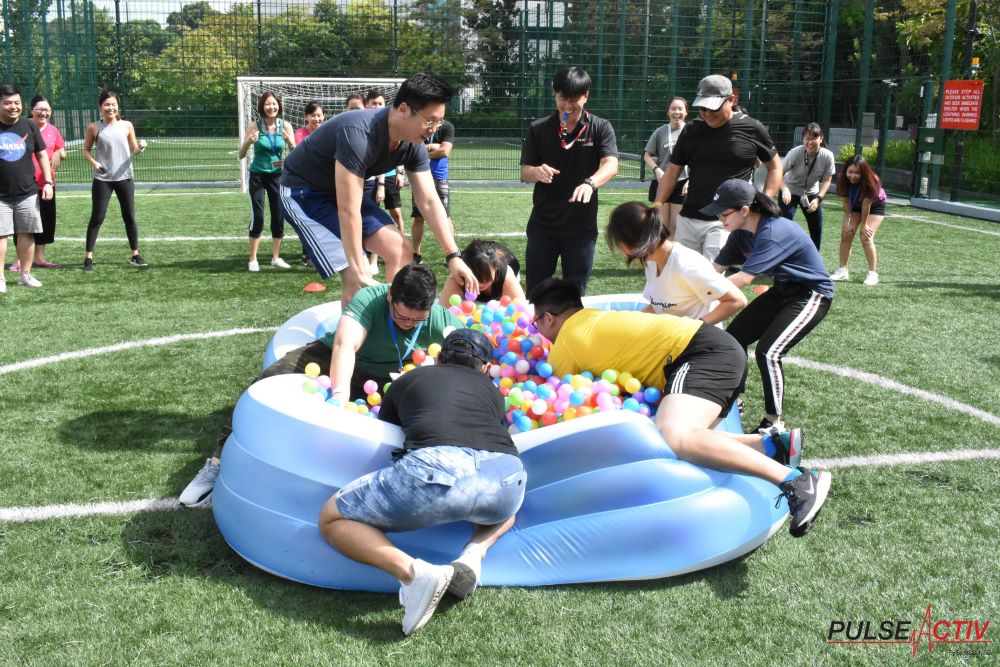The Evolution of Team-Building: From Traditional to Modern Approaches
In the fast-paced world of corporate environments, team-building has evolved significantly from its traditional roots to embrace more innovative and dynamic approaches. This transformation reflects broader changes in work culture, technology, and societal expectations. Understanding this evolution can help organizations design more effective team-building strategies that align with contemporary needs and preferences.
The Origins of Team Building
Traditional Team-Building Activities
Historically, team-building activities were straightforward and often involved basic exercises designed to improve teamwork and communication. Classic examples include:
- Icebreakers: Simple games and questions aimed at helping team members get to know each other.
- Workshops: Structured sessions focusing on communication skills, leadership, and problem-solving.
- Outdoor Activities: Basic team challenges such as obstacle courses and trust falls.
These activities primarily focused on enhancing interpersonal relationships and were often limited in scope and variety. They laid the foundation for the importance of team dynamics but lacked the depth and engagement seen in modern approaches.
The Shift to Modern Team Building
Technological Integration
With the advent of technology, team-building has expanded beyond traditional methods. The integration of technology into team-building has introduced new dimensions:
- Virtual Team Building: The rise of remote work has led to the development of virtual team-building activities. Online escape rooms, virtual trivia, and digital scavenger hunts have become popular ways to engage distributed teams.
- Augmented and Virtual Reality: These technologies provide immersive experiences that can simulate real-world scenarios, enhancing problem-solving and collaboration in a controlled environment.
Gamification
Gamification has revolutionized team-building by incorporating game design elements into activities:
- Competitive Challenges: Activities like point-based competitions and leaderboard tracking add a fun, competitive edge.
- Interactive Games: Incorporating game mechanics into team-building exercises, such as simulations and role-playing games, can enhance engagement and motivation.
Personalization and Customization
Modern team-building emphasizes tailored experiences to meet the specific needs of teams:
- Industry-Specific Activities: Tailoring activities to the industry’s unique challenges can make them more relevant and impactful. For instance, tech companies might use coding challenges, while creative agencies might focus on brainstorming sessions.
- Cultural Sensitivity: As workplaces become more diverse, activities are designed to be inclusive and sensitive to various cultural backgrounds, ensuring that all team members feel respected and engaged.
Focus on Wellness
In recent years, there has been a growing emphasis on integrating wellness into team-building:
- Mindfulness and Stress Relief: Activities like guided meditation and yoga sessions are incorporated to promote mental well-being and reduce stress.
- Health-Oriented Challenges: Fitness challenges and health workshops encourage teams to focus on overall wellness, which can enhance productivity and morale.
Benefits of Modern Team-Building Approaches
Enhanced Engagement
Modern team-building activities, with their focus on technology and gamification, often lead to higher levels of engagement and participation. The interactive and immersive nature of these activities captures attention and motivates team members to actively participate.
Increased Relevance
By customizing activities to align with specific industry needs and team dynamics, organizations ensure that team-building efforts are directly relevant to their goals and challenges. This relevance increases the likelihood of achieving meaningful outcomes.
Improved Collaboration and Communication
Modern team-building activities are designed to address complex team dynamics and foster effective collaboration. Activities that simulate real-world challenges and require creative problem-solving enhance communication and teamwork skills.
Greater Inclusivity
The emphasis on cultural sensitivity and inclusiveness in modern team-building ensures that all team members feel valued and included. This inclusivity helps build a stronger, more cohesive team.
Looking Ahead: Future Trends in Team Building
As we look to the future, team-building is likely to continue evolving with advances in technology and changes in work culture:
- Hybrid Events: Combining in-person and virtual elements will offer flexibility and inclusivity for teams with diverse needs.
- AI and Data Analytics: Leveraging artificial intelligence and data analytics can provide insights into team dynamics and personalize team-building activities even further.
- Sustainability: Eco-friendly and sustainable practices will become increasingly important, with a focus on reducing the environmental impact of team-building events.
Conclusion
The evolution of team-building from traditional to modern approaches reflects broader changes in the workplace and society. By embracing technological advancements, customizing experiences, and focusing on wellness, organizations can create more effective and engaging team-building activities. As we move forward, staying attuned to emerging trends and continuously adapting will be key to fostering strong, collaborative teams in an ever-changing environment.
To head back to read another article in our blog, click here.

